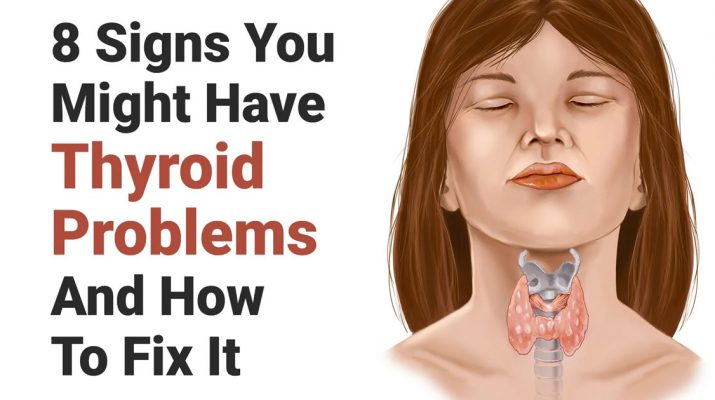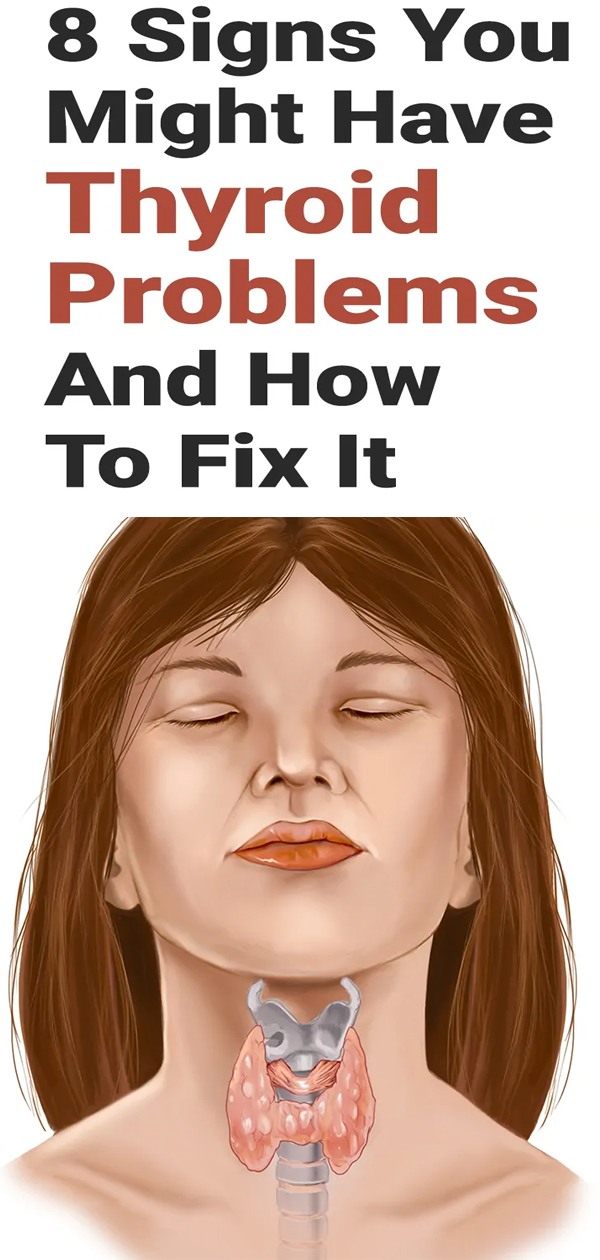The thyroid is a small, butterfly-shaped gland that is positioned in the front of the neck. But its size does not discount its necessity to the body. In actuality, it is one of the most important organs that all people have because of its impact on so many of the other systems of the body, which control energy levels, hormone production, and heart rate and blood pressure.
What this means, in layman’s terms, is that whenever anything happens to go wrong with it, thyroid treatment needs to begin right away. For this reason, it is important that everyone knows about the following eight signs of thyroid problems to look out for:
Changes in Blood Pressure
Two common conditions of this gland are hyperthyroidism and hypothyroidism. If the thyroid is producing too much thyroid hormone, doctors give the diagnosis of hyperthyroidism. If someone produces too little, then that means they have hypothyroidism.
The first condition causes the heart to work much harder than it normally would. This can be seen in a person’s higher than normal blood pressure readings and heart rate. The second condition causes the heart to work much slower than it is supposed to, so they often develop low blood pressure readings of 110/65 or less.
Changes in Body Temperature
The influence that this gland has on the metabolic system can be seen in the temperature changes that occur when it isn’t working as it should. Usually, most people have a body temperature of about 98.6 degrees Fahrenheit. Hyperthyroidism causes it to be about one degree higher than this. And hypothyroidism is seen by a one-degree drop.
Weight Gain or Weight Loss
At first, a person who develops hyperthyroidism might enjoy the sudden weight loss that they experience because the pounds seem to come off effortlessly. After a while, this symptom isn’t as appealing though because of the sunken appearance that they quickly develop. Whenever the thyroid works too slowly, the opposite effect occurs. So, no matter how hard a person tries, weight loss is next to impossible to achieve.
Hair Changes
In both of these conditions, the hair on a person’s head will become coarse and dry. They might also have some of their eyelashes fall out, and the outer portions of the eyebrows will start to disappear.
Changes in Sex Drive
It is common for people with hyperthyroidism to develop a sex drive that is much higher than normal. For some, it can be quite burdensome because of the strain that it can cause on their relationship. Hypothyroidism reduces a man or woman’s sex drive significantly though.
Anxiety and Depression
Undiagnosed hypothyroidism is one of the main contributors to depression. But those who have hyperthyroidism seem to experience anxiety more often. Sometimes, other mental health changes can occur when the gland works too fast, such as a condition called a “thyroid storm,” which is caused by an excessively high amount of T-3, TSH, and T-4 hormones being released all at once. It is very serious because it can lead to hallucinations, racing thoughts, and a heart rate that is so high that some people have to be hospitalized for it.
Weak Bones and Teeth
The hormones that this organ produces have a major impact on the way that the body uses calcium. So whenever they are out of balance, a person commonly has brittle bones that break easily and fragile teeth full of cavities.
Eye Changes
It is mainly when this gland is working too fast that eye changes become obvious. That is because a condition of this gland called “Grave’s disease” can develop, which causes the eyes to bulge out and the eyelids to recede. A person’s vision will also be affected.
As you can see, problems with this gland can have a serious impact on the body. So it is crucial that anyone who is experiencing any of these symptoms seeks medical attention from their doctor right away to ensure that their condition doesn’t worsen. Once they have an official diagnosis, thyroid treatment can begin.
Some of the natural remedies that are commonly used for hyperthyroidism and hypothyroidism are bladderwrack, kelp, iodine extract, ashwaganda, lemon balm, and bugleweed. Each of them have their own benefits and side effects though. And they don’t all work well with prescription medications. So it is important to discuss the use of them with a physician beforehand.


